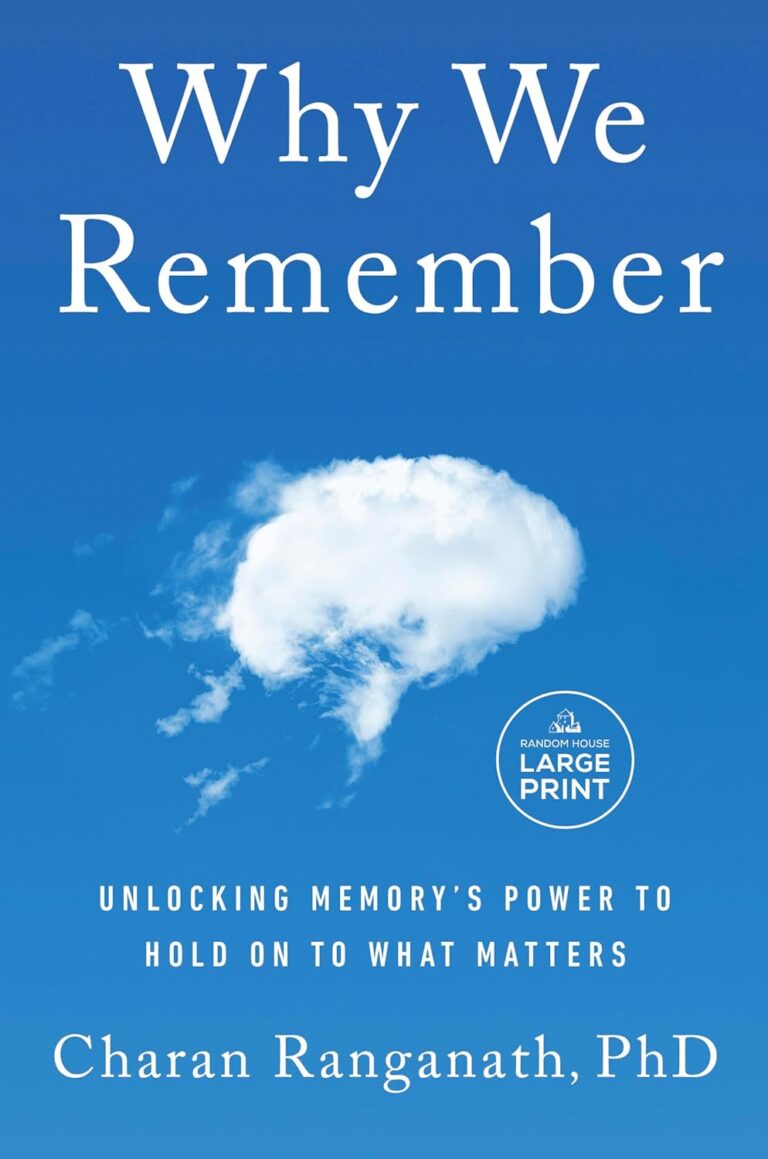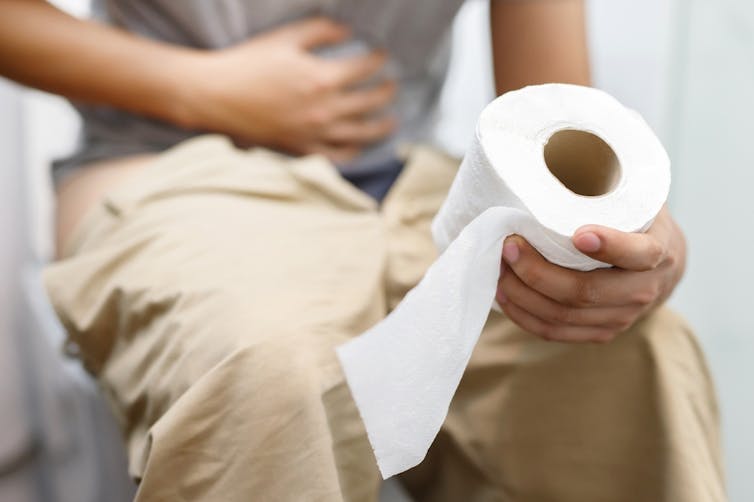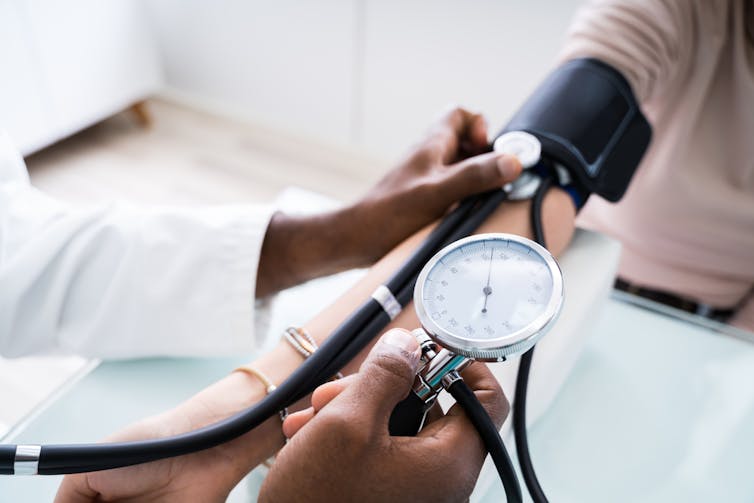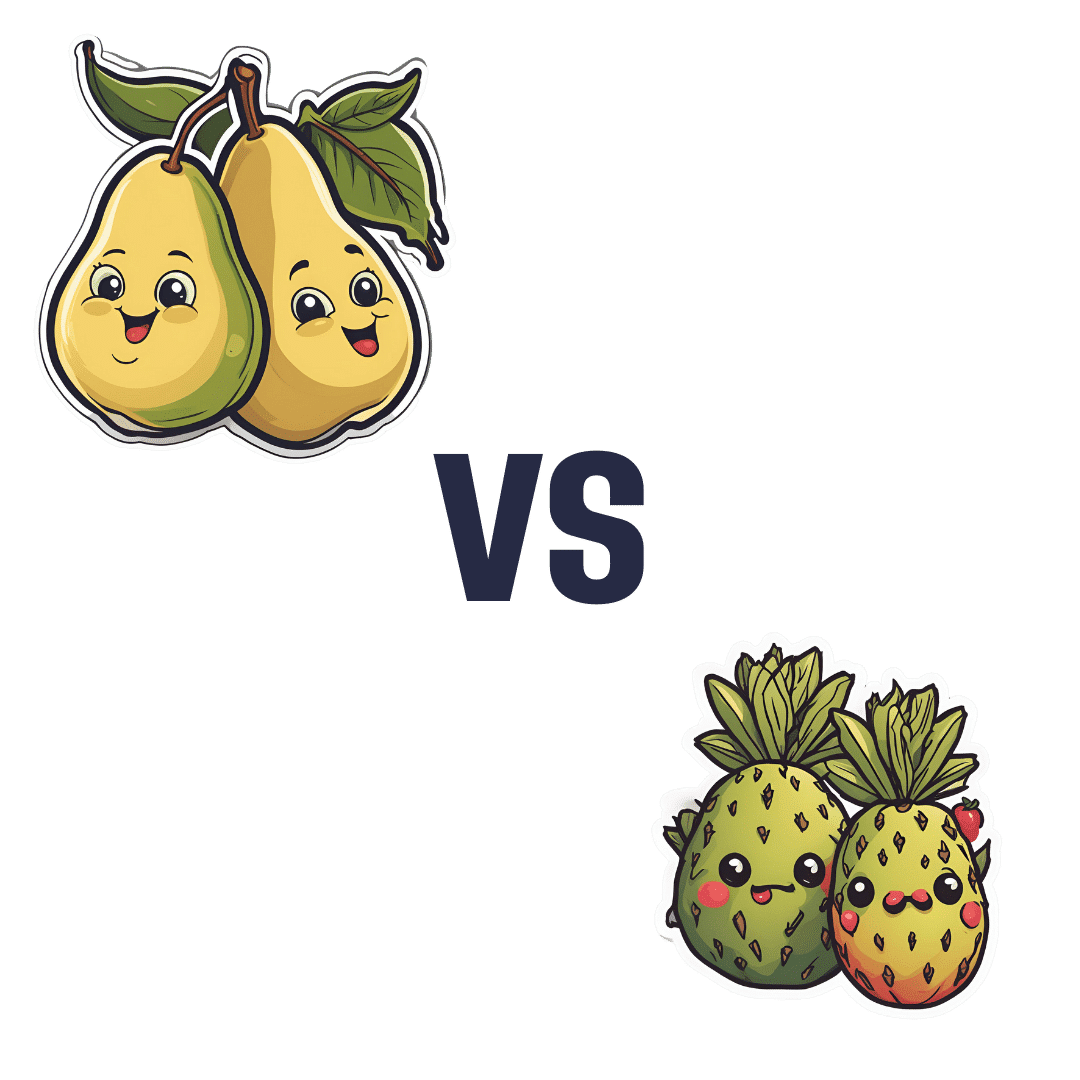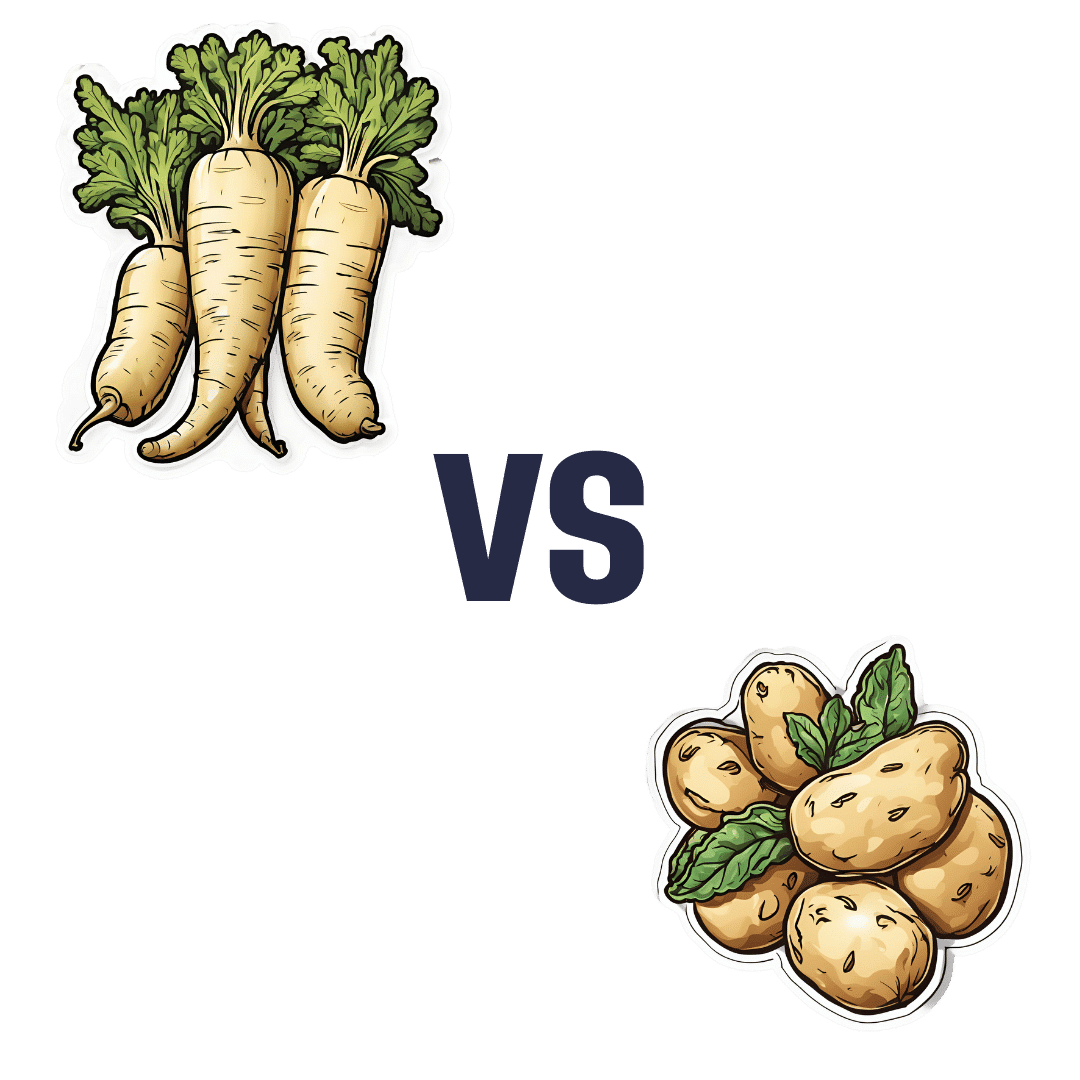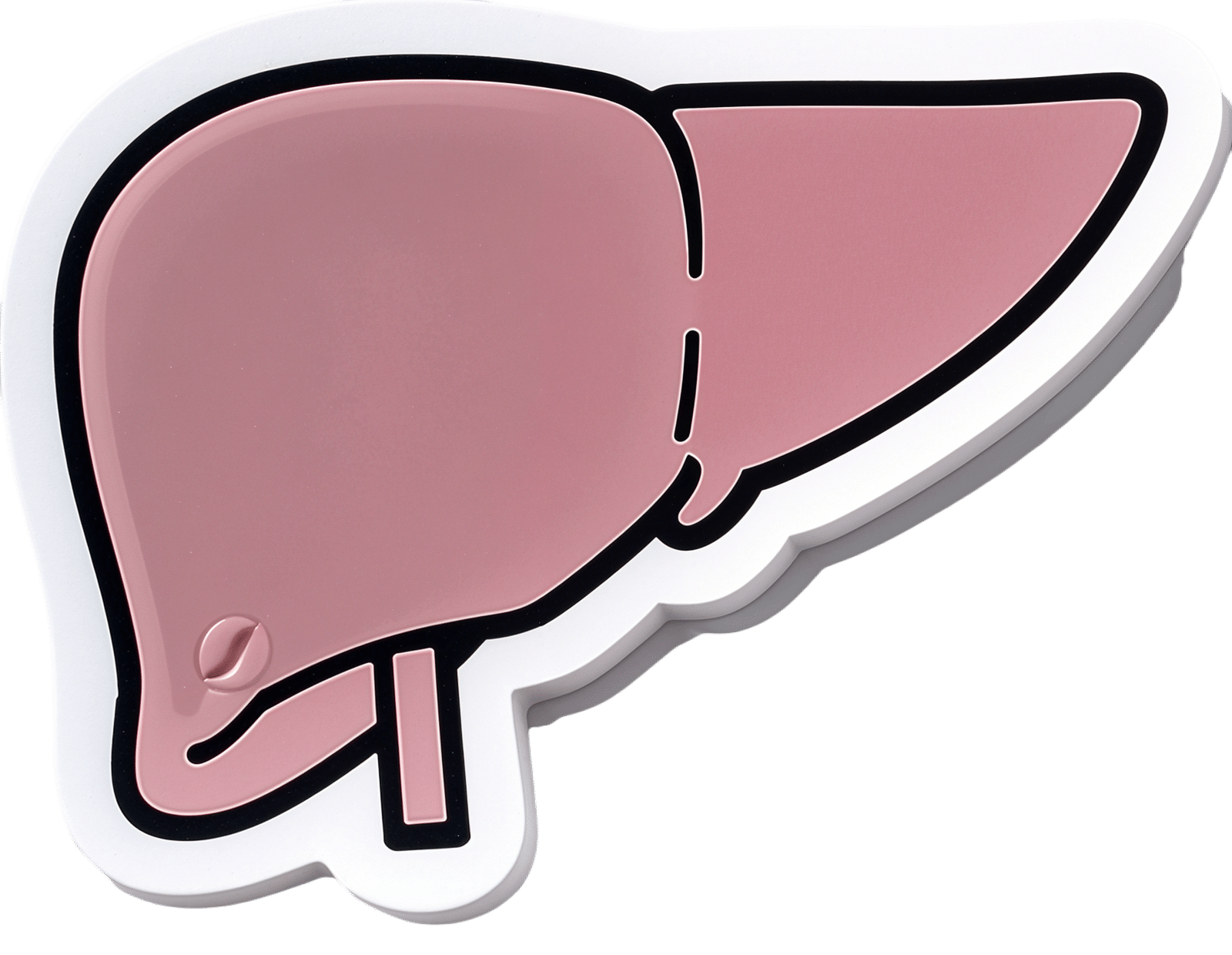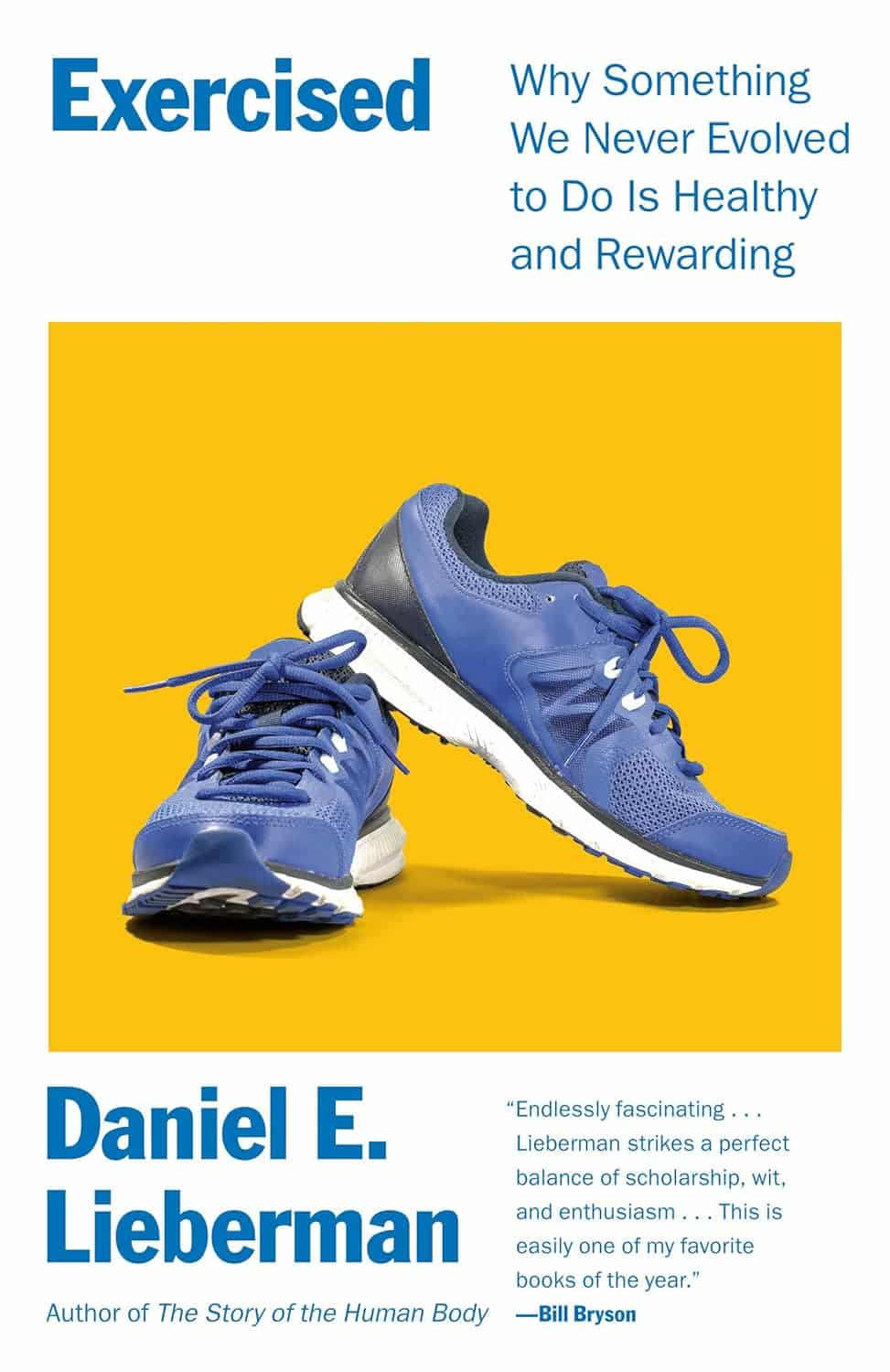
Exercised – by Dr. Daniel Lieberman
10almonds is reader-supported. We may, at no cost to you, receive a portion of sales if you purchase a product through a link in this article.
Surely the title is taking liberties? We must have evolved to exercise, right? Not exactly.
We evolved to conserve energy. Our strength-to-weight ratio is generally unimpressive, we cannot casually hang in trees, and we spend a third of our lives asleep.
Strengths that we do have, however, include a large brain and a versatile gut perfect for opportunism. Again, not the indicators of being evolved for exercise.
So, Dr. Lieberman tells us, if we’re not inclined to get up and go, that’s quite natural. So, why does it feel good when we do get up and go?
This book covers a lot of the “this not that” aspects of exercise. By this we mean: ways that we can work with or against our bodies, for both physical and psychological fulfilment.
There’s an emphasis on such things as:
- movement without excessive exertion
- persistence being more important than power
- strength-building but only so far as is helpful to us
…and many other factors that you won’t generally see on your gym’s motivational posters
Bottom line: this book is for all those who have felt “exercise is not for me” but would also like the benefits of exercise. It turns out that there’s a best-of-both-worlds sweet spot!
Click here to check out Exercised and get working with your body rather than against it!
Don’t Forget…
Did you arrive here from our newsletter? Don’t forget to return to the email to continue learning!
Recommended
Learn to Age Gracefully
Join the 98k+ American women taking control of their health & aging with our 100% free (and fun!) daily emails:
-
Tips for Avoiding PFAs
10almonds is reader-supported. We may, at no cost to you, receive a portion of sales if you purchase a product through a link in this article.
It’s Q&A Day at 10almonds!
Have a question or a request? You can always hit “reply” to any of our emails, or use the feedback widget at the bottom!
In cases where we’ve already covered something, we might link to what we wrote before, but will always be happy to revisit any of our topics again in the future too—there’s always more to say!
As ever: if the question/request can be answered briefly, we’ll do it here in our Q&A Thursday edition. If not, we’ll make a main feature of it shortly afterwards!
So, no question/request too big or small
❝Hi, do you have anything helpful on avoiding PFAs?❞
PFAS, or perfluoroalkyl and polyfluoroalkyl substances, are “forever chemicals” made specifically to avoid degradation of industrial and chemical products. Which is great for providing stain and water resistance, but not so great for our bodies or the environment.
To go into all the harms they cause would take a main feature (maybe we will, one of these days), but suffice it to say, they’re not good, and range from cancer and insulin resistance to hypertension and reduced immune response.
To answer your question in a nutshell, avoiding them completely would be almost impossible, but we can reduce our exposure a lot by avoiding single-use food/drink products that have been waterproofed, e.g. paper/bamboo straws, utensils, cups, dishes, take-out containers, etc.
Also, anything advertised as “stain-resistant” that you suspect should be quite stainable by nature, is probably good to avoid too.
For more detailed information than we have room for here today, here’s a helpful overview:
Share This Post
-
Constipation increases your risk of a heart attack, new study finds – and not just on the toilet
10almonds is reader-supported. We may, at no cost to you, receive a portion of sales if you purchase a product through a link in this article.
If you Google the terms “constipation” and “heart attack” it’s not long before the name Elvis Presley crops up. Elvis had a longstanding history of chronic constipation and it’s believed he was straining very hard to poo, which then led to a fatal heart attack.
We don’t know what really happened to the so-called King of Rock “n” Roll back in 1977. There were likely several contributing factors to his death, and this theory is one of many.
But after this famous case researchers took a strong interest in the link between constipation and the risk of a heart attack.
This includes a recent study led by Australian researchers involving data from thousands of people.
Elvis Presley was said to have died of a heart attack while straining on the toilet. But is that true? Kraft74/Shutterstock Are constipation and heart attacks linked?
Large population studies show constipation is linked to an increased risk of heart attacks.
For example, an Australian study involved more than 540,000 people over 60 in hospital for a range of conditions. It found constipated patients had a higher risk of high blood pressure, heart attacks and strokes compared to non-constipated patients of the same age.
A Danish study of more than 900,000 people from hospitals and hospital outpatient clinics also found that people who were constipated had an increased risk of heart attacks and strokes.
It was unclear, however, if this relationship between constipation and an increased risk of heart attacks and strokes would hold true for healthy people outside hospital.
These Australian and Danish studies also did not factor in the effects of drugs used to treat high blood pressure (hypertension), which can make you constipated.
Researchers have studied thousands of people to see if there’s a link between constipation and heart attacks. fongbeerredhot/Shutterstock How about this new study?
The recent international study led by Monash University researchers found a connection between constipation and an increased risk of heart attacks, strokes and heart failure in a general population.
The researchers analysed data from the UK Biobank, a database of health-related information from about half a million people in the United Kingdom.
The researchers identified more than 23,000 cases of constipation and accounted for the effect of drugs to treat high blood pressure, which can lead to constipation.
People with constipation (identified through medical records or via a questionnaire) were twice as likely to have a heart attack, stroke or heart failure as those without constipation.
The researchers found a strong link between high blood pressure and constipation. Individuals with hypertension who were also constipated had a 34% increased risk of a major heart event compared to those with just hypertension.
The study only looked at the data from people of European ancestry. However, there is good reason to believe the link between constipation and heart attacks applies to other populations.
A Japanese study looked at more than 45,000 men and women in the general population. It found people passing a bowel motion once every two to three days had a higher risk of dying from heart disease compared with ones who passed at least one bowel motion a day.
How might constipation cause a heart attack?
Chronic constipation can lead to straining when passing a stool. This can result in laboured breathing and can lead to a rise in blood pressure.
In one Japanese study including ten elderly people, blood pressure was high just before passing a bowel motion and continued to rise during the bowel motion. This increase in blood pressure lasted for an hour afterwards, a pattern not seen in younger Japanese people.
One theory is that older people have stiffer blood vessels due to atherosclerosis (thickening or hardening of the arteries caused by a build-up of plaque) and other age-related changes. So their high blood pressure can persist for some time after straining. But the blood pressure of younger people returns quickly to normal as they have more elastic blood vessels.
As blood pressure rises, the risk of heart disease increases. The risk of developing heart disease doubles when systolic blood pressure (the top number in your blood pressure reading) rises permanently by 20 mmHg (millimetres of mercury, a standard measure of blood pressure).
The systolic blood pressure rise with straining in passing a stool has been reported to be as high as 70 mmHg. This rise is only temporary but with persistent straining in chronic constipation this could lead to an increased risk of heart attacks.
High blood pressure from straining on the toilet can last after pooing, especially in older people. Andrey_Popov/Shutterstock Some people with chronic constipation may have an impaired function of their vagus nerve, which controls various bodily functions, including digestion, heart rate and breathing.
This impaired function can result in abnormalities of heart rate and over-activation of the flight-fight response. This can, in turn, lead to elevated blood pressure.
Another intriguing avenue of research examines the imbalance in gut bacteria in people with constipation.
This imbalance, known as dysbiosis, can result in microbes and other substances leaking through the gut barrier into the bloodstream and triggering an immune response. This, in turn, can lead to low-grade inflammation in the blood circulation and arteries becoming stiffer, increasing the risk of a heart attack.
This latest study also explored genetic links between constipation and heart disease. The researchers found shared genetic factors that underlie both constipation and heart disease.
What can we do about this?
Constipation affects around 19% of the global population aged 60 and older. So there is a substantial portion of the population at an increased risk of heart disease due to their bowel health.
Managing chronic constipation through dietary changes (particularly increased dietary fibre), increased physical activity, ensuring adequate hydration and using medications, if necessary, are all important ways to help improve bowel function and reduce the risk of heart disease.
Vincent Ho, Associate Professor and clinical academic gastroenterologist, Western Sydney University
This article is republished from The Conversation under a Creative Commons license. Read the original article.
Share This Post
-
10 Tips To Reduce Morning Pain & Stiffness With Arthritis
10almonds is reader-supported. We may, at no cost to you, receive a portion of sales if you purchase a product through a link in this article.
Physiotherapist and osteoarthritis specialist Dr. Alyssa Kuhn has professional advice:
Just the tips
We’ll not keep them a mystery; they are:
- Perform movements that target the range of motion in stiff joints, especially in knees and hips, to prevent them from being stuck in limited positions overnight.
- Use relaxation techniques like a hot shower, heating pad, or light reading before bed to reduce muscle tension and stiffness upon waking.
- Manage joint swelling during the day through gentle movement, compression sleeves, and self-massage .
- Maintain a balanced level of activity throughout the day to avoid excessive stiffness from either overactivity or, on the flipside, prolonged inactivity.
- Use pillows to support joints, such as placing one between your knees for hip and knee arthritis, and ensure you have a comfortable pillow for neck support.
- Eat anti-inflammatory foods prioritizing fruits and vegetables to reduce joint stiffness, and avoid foods high in added sugar, trans-fats, and saturated fats.
- Perform simple morning exercises targeting stiff areas to quickly relieve stiffness and ease into your daily routine.
- Engage in strength training exercises 2–3 times per week to build stronger muscles around the joints, which can reduce stiffness and pain.
- Ensure you get 7–8 hours of restful sleep, as poor sleep can increase stiffness and pain sensitivity the next day. 10almonds note: we realize there’s a degree of “catch 22” here, but we’re simply reporting her advice. Of course, do what you can to prioritize being able to get the best quality sleep you can.
- Perform gentle movements or stretches before bed to keep joints limber, focusing on exercises that feel comfortable and soothing.
For more on each of these plus some visual demonstrations, enjoy:
Click Here If The Embedded Video Doesn’t Load Automatically!
Want to learn more?
You might also like to read:
- Avoiding/Managing Osteoarthritis
- Avoiding/Managing Rheumatoid Arthritis
- Managing Chronic Pain (Realistically!)
Take care!
Share This Post
Related Posts
-
Pear vs Prickly Pear – Which is Healthier?
10almonds is reader-supported. We may, at no cost to you, receive a portion of sales if you purchase a product through a link in this article.
Our Verdict
When comparing pear to prickly pear, we picked the prickly.
Why?
Both of these fruits are fine and worthy choices, but the prickly pear wins out in nutritional density.
Looking at the macros to start with, the prickly pear is higher in fiber and lower in carbs, resulting in a much lower glycemic index. However, non-prickly pears are already low GI, so this is not a huge matter. Whether it’s pear’s GI of 38 or prickly pear’s GI of 7, you’re unlikely to experience a glucose spike.
In the category of vitamins, pear has a little more of vitamins B5, B9, E, K, and choline, but the margins are tiny. On the other hand, prickly pear has more of vitamins A, B1, B2, B3, B6, and C, with much larger margins of difference (except vitamin B1; that’s still quite close). Even before taking margins of difference into account, this is a slight win for prickly pear.
When it comes to minerals, things are more pronounced; pear has more manganese, while prickly pear has more calcium, iron, magnesium, phosphorus, potassium, selenium, and zinc.
In short, both pears are great (so do enjoy the pair), but prickly pear is the clear winner where one must be declared.
Want to learn more?
You might like to read:
Apple vs Pear – Which is Healthier?
Take care!
Don’t Forget…
Did you arrive here from our newsletter? Don’t forget to return to the email to continue learning!
Learn to Age Gracefully
Join the 98k+ American women taking control of their health & aging with our 100% free (and fun!) daily emails:
-
Parsnips vs Potatoes – Which is Healthier?
10almonds is reader-supported. We may, at no cost to you, receive a portion of sales if you purchase a product through a link in this article.
Our Verdict
When comparing parsnips to potatoes, we picked the parsnips.
Why?
To be more specific, we’re looking at russet potatoes, and in both cases we’re looking at cooked without fat or salt, skin on. In other words, the basic nutritional values of these plants in edible form, without adding anything. With this in mind, once we get to the root of things, there’s a clear winner:
Looking at the macros first, potatoes have more carbs while parsnips have more fiber. Potatoes do have more protein too, but given the small numbers involved when it comes to protein we don’t think this is enough of a plus to outweigh the extra fiber in the parsnips.
In the category of vitamins, again a champion emerges: parsnips have more of vitamins B1, B2, B5, B9, C, E, and K, while potatoes have more of vitamins B3, B6, and choline. So, a 7:3 win for parsnips.
When it comes to minerals, parsnips have more calcium copper, manganese, selenium, and zinc, while potatoes have more iron and potassium. Potatoes do also have more sodium, but for most people most of the time, this is not a plus, healthwise. Disregarding the sodium, this category sees a 5:2 win for parsnips.
In short: as with most starchy vegetables, enjoy both in moderation if you feel so inclined, but if you’re picking one, then parsnips are the nutritionally best choice here.
Want to learn more?
You might like to read:
- Why You’re Probably Not Getting Enough Fiber (And How To Fix It)
- Should You Go Light Or Heavy On Carbs?
Take care!
Don’t Forget…
Did you arrive here from our newsletter? Don’t forget to return to the email to continue learning!
Learn to Age Gracefully
Join the 98k+ American women taking control of their health & aging with our 100% free (and fun!) daily emails:
-
How To Unfatty A Fatty Liver
10almonds is reader-supported. We may, at no cost to you, receive a portion of sales if you purchase a product through a link in this article.
How To Unfatty A Fatty Liver
In Greek mythology, Prometheus suffered the punishment of being chained to a rock, where he would have his liver eaten by an eagle, whereupon each day his liver would grow back, only to be eaten again the next day.
We mere humans who are not Greek gods might not be able to endure quite such punishment to our liver, but it is an incredibly resilient and self-regenerative organ.
In fact, provided at least 51% of the liver is still present and correct, the other 49% will regrow. Similarly, damage done (such as by trying to store too much fat there due to metabolic problems, as in alcoholic or non-alcoholic fatty liver disease) will reverse itself in time, given the chance.
The difference between us and Prometheus
In the myth, Prometheus had his liver regrow overnight every night. Ours don’t recover quite so quickly.
Indeed, the science has good and bad news for us:
❝Liver recolonization models have demonstrated that hepatocytes have an unlimited regenerative capacity. However, in normal liver, cell turnover is very slow.❞
~ Michalopoulos and Bhusan (2020)
Read more: Liver regeneration: biological and pathological mechanisms and implications
If it regenerates, why do people need transplants, and/or die of liver disease?
There are some diseases of the liver that inhibit its regenerative abilities, or (as in the case of cancer) abuse them to our detriment. However, in the case of fatty liver disease, the reason is usually simple:
If the lifestyle factors that caused the liver to become fatty are still there, then its regenerative abilities won’t be able to keep up with the damage that is still being done.
Can we speed it up at all?
Yes! The first and most important thing is to minimize how much ongoing harm you are still doing to it, though.
- If you drink alcohol, stop. According to the WHO, the only amount of alcohol that is safe for you is zero.
- You might like our previous article: How To Reduce Or Quit Alcohol
- Consider your medications, and find out which place a strain on the liver. Many medications are not optional; you’re taking them for an important reason, so don’t quit things without checking with your doctor. Medications that strain the liver include, but are by no means limited to:
- Many painkillers, including acetaminophen/paracetamol (e.g. Tylenol), and ibuprofen
- Some immunosuppresent drugs, including azathioprine
- Some epilepsy drugs, including phenytoin
- Some antibiotics, including amoxicillin
- Statins in general
Note: we are not pharmacists, nor doctors, let alone your doctors.
Check with yours about what is important for you to take, and what alternatives might be safe for you to consider.
Dietary considerations
While there are still things we don’t know about the cause(s) of non-alcoholic fatty liver disease, there is a very strong association with a diet that is:
- high in salt
- high in refined carbohydrates
- e.g. white flour and white flour products such as white bread and white pasta; also the other main refined carbohydrate: sugar
- high in red meat
- high in non-fermented dairy
- high in fried foods.
So, consider minimizing those, and instead getting plenty of fiber, and plenty of lean protein (not from red meat, but poultry and fish are fine iff not fried; beans and legumes are top-tier, though).
Also, hydrate. Most people are dehydrated most of the time, and that’s bad for all parts of the body, and the liver is no exception. It can’t regenerate if it’s running on empty!
Read more: Foods To Include (And Avoid) In A Healthy Liver Diet
How long will it take to heal?
In the case of alcoholic fatty liver disease, it should start healing a few days after stopping drinking. Then, how long it takes to fully recover depends on the extent of the damage; it could be weeks or months. In extreme cases, years, but that is rare. Usually if the damage is that severe, a transplant is needed.
In the case of non-alcoholic fatty liver disease, again it depends on the extent of the damage, but it is usually a quicker recovery than the alcoholic kind—especially if eating a Mediterranean diet.
Read more: How Long Does It Take For Your Liver To Repair Itself?
Take good care of yourself!
Don’t Forget…
Did you arrive here from our newsletter? Don’t forget to return to the email to continue learning!
Learn to Age Gracefully
Join the 98k+ American women taking control of their health & aging with our 100% free (and fun!) daily emails:
- If you drink alcohol, stop. According to the WHO, the only amount of alcohol that is safe for you is zero.

